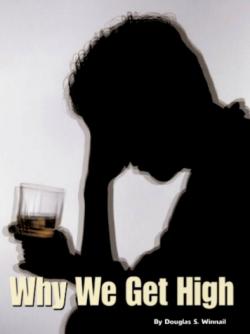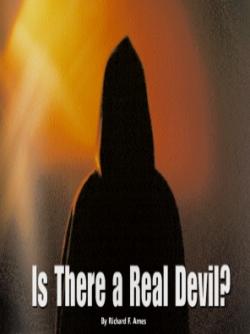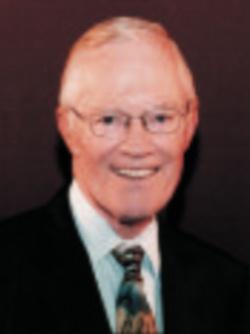Fragmentation in the Age of Globalism
As the world becomes more and more interconnected, nations are fracturing along old ethnic and religious lines. Pension funds in Canada can be affected by economic developments in Russia or Thailand. Is there an alternative to mankind's fragile nation-states? What does the Bible say?
In recent years, our world has been moving inexorably toward becoming a "global village." Rapid travel and instantaneous communication have tied the entire globe together to a degree unimaginable just a generation ago. Satellite and computer technologies have broken down the restrictions of national borders in the flow of information and ideas. Multinational corporations and conglomerates now dominate virtually every field from finance to manufacturing—further integrating the world economy.
Make no mistake about it; today's world economy is more interconnected than ever before. Japanese companies are not simply Japanese companies, American companies are not simply American companies and French companies… well, you get the point! In many cases something that is "American made" contains components that were manufactured in a number of other countries. Japanese auto manufacturers have plants in the United States and American companies have plants in Mexico and Latin America. Even when people think they are buying a familiar national brand, often the manufacturer or the brand name is actually owned by a multinational conglomerate headquartered half a world away.
Our global economy is characterized not only by free trade in goods and services, however. Of even greater effect is the free movement of capital all around the world. Global financial markets exert tremendous influence on worldwide economic conditions. Interest and exchange rates, as well as stock prices in various countries, are very much interrelated. There has been rapid growth of the global financial markets because financial capital is free to be moved wherever in the world it will be best rewarded. Because of this, we now find that pension funds in Canada can be directly affected by events in the economies of Russia or Thailand.
Yet, paradoxically, as the world becomes more and more interconnected, nations are increasingly subdividing and fragmenting along old ethnic and religious lines. Europe, Asia and Africa have, during the last decade, all been rent with warfare and violence directly related to such ancient divisions. Government and financial leaders have pointed to such conflicts as an illustration of the need for a viable alternative to the present, unsteady system of independent nation-states.
Billionaire financier George Soros in 1998 wrote a book titled The Crisis of Global Capitalism, in which he discussed some of these very topics. He observed that financial markets are inherently unstable and what solution did Mr. Soros propose? "To stabilize and regulate a truly global economy, we need some global system of political decision-making. In short we need a global society to support our global economy… the sovereignty of states must be subordinated to international law and international institutions" (excerpted in Newsweek, Dec. 7, 1998, p. 84).
Leaders in government, as well as in finance and industry, are worried. They see a world increasingly interconnected in the economic sphere, and thus threatened with worldwide economic dislocations as a result of strife and conflict in far-flung areas of the globe. Such instability could threaten the entire economic edifice that mankind is building up.
The Cold War Is Over—Where Is Peace?
The English-speaking nations spent more than half of the twentieth century, beginning in 1914, locked in wars either "hot" or "cold." Finally, in 1989, it all seemed to be over. The Iron Curtain was no more. People danced in the streets throughout Eastern Europe. There was a sense of euphoria in the air. Two years later, in December 1991, the Soviet Union itself ceased to exist. In its place were a non-communist Russia and more than a dozen other independent republics. The Cold War was over and the West had won! After four decades of living under the nuclear shadow of "mutually assured destruction," peace had finally been achieved. Or had it?
The bipolar world dominated by two superpowers is no more. What remains, however, is a far more fragile and complex arrangement. Nowhere is this fragility more evident than in the Balkans, dubbed in the 19th century "the powder keg of Europe."
Additionally, there has been major bloodletting involving the Kurds in Turkey and Iraq and various tribal factions in both East and West Africa. East Timor has broken away from Indonesia, the Philippines is faced with its own breakaway movement and even tropical paradises such as Fiji have been torn by coups rooted in ethnic rivalries. Ancient conflicts have also re-erupted between Hindus and Muslims in India, not to mention between Jews and Arabs in the Middle East. Of course problems in the Middle East always raise the specter of disruptions in the flow of oil—and therefore of major disruption in economies around the world.
All of this fragmentation is occurring at a time when big business is becoming ever bigger. Merger mania has gripped the international business community. Banks, insurance companies and manufacturing concerns are continually merging and becoming part of ever-larger conglomerates, while trade barriers between nations are increasingly being eliminated.
In the aftermath of the cold war, the economies of the former Soviet bloc were tied to those of western nations. Many thought that this economic interdependence would guarantee peace, eliminating the potential for war. The result has been far different than was imagined in those heady days of 1989. It is certainly true that economies all over the world are increasingly chained together. But there has been a dawning awareness, sharpened by the Asian meltdown of 1997, that no chain is any stronger than its weakest link. Increased linkage in such a fragile, fractious global environment has made affluent western nations more vulnerable than ever before.
These are the circumstances that provided the backdrop for the so-called Millennium Summit, held at United Nations headquarters in New York, from September 5-9, 2000. This was the largest gathering of world leaders ever and took place at the 55th annual meeting of the UN General Assembly. Throughout its history, the United Nations has proven itself inept and ineffectual in resolving problems on the world scene. With a General Assembly that is little more than a debating society for third world countries, and a Security Council that can be easily paralyzed by big power vetoes, the UN has very little that is positive to show for its decades of existence. Events that have required military actions have generally had to rely on American troops if effective action was to be taken; though at certain times this has been under ostensible UN auspices. It was in this context that French Foreign Minister Hubert Vedrine made an announcement to the General Assembly in his speech during the Summit on September 7. "The European Union has decided to equip itself to be a major political actor and play its full role on the international stage" (Agence France-Presse, Sept. 12, 2000). The EU, he announced, intended to create and equip a military force of 60,000 for use in international missions by 2003.
Many leaders realize that a world increasingly integrated economically still lacks the political and military means to prevent the disruption of that integration. Even more, the world lacks anything to provide an overarching sense of identity for its people that would provide loyalty to global institutions. Without a sense of common identity, fragmentation along old fault lines can only worsen.
Contenders for World Power
A number of years ago, Poland's Catholic primate, Cardinal Stefan Wyszynski of Warsaw, defined three geopolitical contenders for power on the world scene. "Three Internationales," he called them (see Malachi Martin, The Keys of This Blood, p. 21). He categorized them as the Golden Internationale, the Red Internationale, and the Black Internationale. The Golden Internationale was the Cardinal's name for the financial powers, the transnationalist capitalist leaders of the West. The Red Internationale referred to the socialist leaders of the East. The Black Internationale was a reference to the Roman Catholic Church with its black-robed priests and nuns.
The first two, he stressed, offered a completely materialistic view of the world.
Both Western capitalists and Eastern socialists view history from a secular perspective. In their raw form, both systems are exclusively materialistic and concerned with the here and now. The Vatican, which has played a dominant geopolitical role in centuries past and aspires to do so once again, takes a different view.
Western capitalism lures the world to her bed by promising the twin pleasures of freedom and prosperity. However, some see that the West has confused freedom with moral anarchy. These capitalists worship bottom-line profits and individuality over virtue and community. Large corporations are notorious for their willingness to lay off tens of thousands of employees if the move is expected to boost their stock prices immediately and reward top management with handsome bonuses. As corporations have increasingly become multinational, any allegiance to employees, a local community, or even to a nation has become minimal or non-existent.
As for the Red Internationale—the socialists—history has shown that a centrally planned economy has not been able to compete with an entrepreneurial one. Despite promises of constructing a workers' paradise, the communists ultimately had to rely on barbed wire fences and armed guards to keep their people from leaving "paradise."
The Red utopian promises have failed and left millions of once true believers disillusioned in their wake. However, among intellectuals who still subscribe to the possibility of a man-made utopia, and among have-nots witnessing an ever-widening gap with the haves in bottom-line capitalistic countries, forms of Marxism still retain drawing power.
People the world over are increasingly aware of the failures of exclusively materialistic philosophies. In their current forms, neither capitalism nor socialism can offer any transcendent goal or purpose. Nor can either produce a just and equitable society where prosperity is sustainable indefinitely. As a result, the age-old ethnic and religious rivalries threaten to fragment an interdependent world.
Unless human emotions and actions can be channeled differently, they will fracture the whole global economic house. An identity that transcends the current divisions and rivalries is clearly needed. For all of the internationalists' desire to supersede the independent nation-state, they have been unable to devise an alternative that would claim the loyalty and stir the emotions of the average man in the street. People do not develop intense emotional loyalty to faceless bureaucrats. How, then, is the looming crisis of fragmentation in an age of globalism to be resolved?
After a period of relative dormancy, the third geopolitical force mentioned by Cardinal Wyszynski, Roman Catholicism, is increasingly flexing its muscle. The Vatican offers a different worldview than either capitalism or communism. And in addition to a worldview, it offers a source of emotional unity; fostered by ritual and pageantry that unites different peoples with different languages and cultures.
In 1981, a private meeting took place in the Vatican between the pope and American CIA Director William Casey. Mr. Casey was a deeply devout Roman Catholic who attended mass almost every day. Director Casey and President Ronald Reagan had come to believe that "there was a potential third superpower in the world—the 109-acre Vatican city-state—and that its monarch, Pope John Paul II, had at his command a remarkable arsenal that might tip the balance of the Cold War. In a meeting that would not be revealed to the world for another decade, Casey… helped seal an alliance between the [pope] and the Reagan Administration" (Reader's Digest, Oct. 1996, p. 213, excerpted from Bernstein and Politi, His Holiness).
Vatican influence was crucial in bringing about the emergence of a non-communist Eastern Europe in 1989 and, along with that, the collapse of the postwar, bipolar world order. Today, Vatican influence is increasingly being felt in the Middle East as well—and is destined to grow markedly.
History Recorded in Advance
Where will the influence of this third force lead? The answer has been recorded in advance, believe it or not! It is found in what to most people would seem an unlikely source—the Holy Bible. In Isaiah 46:10, God tells us that He declares "the end from the beginning, and from ancient times things that are not yet done, saying, 'My counsel shall stand, and I will do all My pleasure.'" Bible prophecy, which constitutes more than one quarter of all Scripture, is simply history recorded in advance! What does it reveal about the turbulent times in which we live and the days ahead of us?
In the book of Revelation, God reveals that in the end-time, a system He calls "Babylon" will arise in Europe and dominate the whole earth. Revelation 18:9-18 and Ezekiel 27 describe a great worldwide trading bloc that will completely dominate the global economy. Babylon involves far more than mere economics, however. It is also a political system called the "Beast" (Revelation 17:9-13), possessing great military power and strength (Revelation 13:4). But, as we will see, religion is the "tie that binds" this whole system.
The original Babylon, or Babel, was founded by Nimrod in the land of Shinar, in what is now Iraq (Genesis 10:8-11). Here the people—all of one language—came together to build the famous Tower of Babel to keep from being fragmented and scattered. The tower was to reach into heaven—a prideful venture that directly challenged God (Genesis 11:1-4). The Almighty intervened and divided the various nationalities by giving them different languages (vv. 5-9). This halted construction of the tower.
This parallels our modern time remarkably. In fact, the economic and political integration of European nations with their different languages has frequently been compared with the ancient Babel project. As an example, the European Commission sponsored a widely distributed poster of the Tower of Babel and the words, "Europe—Many Tongues, One Voice."
In addition to trying to build a political empire, Nimrod also promulgated an idolatrous system of worship known as the Babylonian Mysteries, through which he sought to unify his subjects. It may surprise you to learn that this essentially pagan religion, though changed in form, has persisted to our day. Called by God "Mystery, Babylon the Great" (Revelation 17:5), it is described as a great "mother" church which will play a major role in end-time events.
Jesus Christ warned His disciples in Matthew 24 that there would be false prophets who, while claiming to represent Him, would lead people astray with a false message (vv. 5, 24). This false system will NOT promote Buddha or Mohammed, but rather will use the name of Jesus Christ while substituting a different message than the one that He taught. Through His Apostles, Christ warned of a time when a great charismatic religious leader—"THE false prophet"—would work apparent miracles and "lying wonders," which would deceive the vast majority of people on earth, even in this modern, secular age (2 Thessalonians 2:9; Revelation 13:13; 19:20).
This false religious leader, who is soon to emerge on the world scene, will head the great Babylonian Mystery system just mentioned. He will ally himself and the religious empire that he heads with a yet-future politico-military leader to arise in Europe. This will constitute the seventh and final resurrection of the old Holy Roman Empire. For a detailed explanation of this subject combining the Bible with the record of secular history, please request our free booklet, The Beast of Revelation.
You see it is religion—a false Christianity—that will ultimately be used as the "glue" to bind a fragmenting world together. This is the only way unity and common identity on a global scale can be achieved. The bad news about an unholy alliance of false religion with economic, military, and political interests is not the end of the story, however. God revealed through the pen of the prophet Daniel the good news beyond the bad. "And in the days of these kings [the final ten who constitute the revived Holy Roman Empire] the God of heaven will set up a kingdom which shall never be destroyed" (Daniel 2:44).
According to the inspired word of God, Jesus Christ is going to return to this earth as King of kings and Lord of lords (Revelation 19:11-16). When He does, He will sweep away the false systems that men have erected and replace them with the glorious Kingdom of God, a government based upon the righteous laws of Almighty God.






